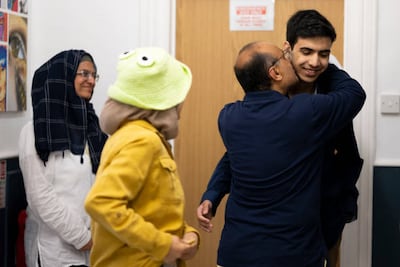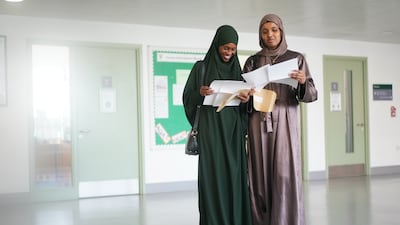Give a man a fish, my father often told me during my childhood, and he will eat for a day. But teach a man how to fish and he will eat for a lifetime. It’s a well-worn saying about the importance of education and, in particular, its role in empowerment.
But what if fishing could be automated through new technologies? Or what when fish stocks dwindle further due to climate change? And what if it’s women who are half of those fishing? The world is changing, and so must our ideas about what constitutes an effective education.
School children are currently receiving their exam results, a pivotal time to determine their future. Back-to-school looms for many around the world in September, with society collectively re-engaging with the education process. But like the proverb about learning to fish, and as we find ourselves in a rapidly changing world, we must think about the purpose of education for a 21st-century global human society.

Education can be for education’s sake, for self development, for improved livelihoods, better jobs, or it can be for the benefit of society. Education is a tool for self-determination of individuals and groups to ensure they own their own narrative, place in society and rights.
A rapidly changing world should drive us to ask what kind of education is needed. Most pressing, I would say, is one that factors in the causes of climate change. What kind of knowledge do we need, and what kind of jobs are required?
In the UK, the government has announced a Natural History GCSE, the key exam at aged 16, to understand more about nature and sustainability. It’s a good step, but education systems need to go further to prepare us for the needs of a future "green economy".
Technology, especially artificial intelligence, will change our societies and our job market. PwC estimates that 30 per cent of jobs across 29 countries are at potential risk of automation by mid-2030s, and this rises to 44 per cent of workers with low education. We have ageing populations globally, and societal shifts such as changing gender roles in the workplace.
Science and health care are taking centre stage after the Covid-19 pandemic, with more risks to come. And space is the next frontier. In all these changing scenarios, education will need to provide the skills to work more creatively, collaboratively and globally. We already have changing ideas about how to learn and what kind of learning is required – from memorising and rote learning to more creative and problem-solving approaches.
Which means that while subjects such as Natural History are a good start, we need to think more holistically about the kinds of citizens we are producing. The subject matter needs re-evaluation. But perhaps also the approach: some western schools are already looking at mindfulness and well-being. But what also of self-development subjects like media literacy, spiritual literacy, eco-tech and others? We should be emerging from factory model education or what used to be called "industrial-era schools" – which is what the current education systems in many countries still are – to ask what subjects do children need and how they need to be taught, to produce well-rounded citizens who can build societies fit for a changing world.
As the mother of two young girls, questions about the purpose of education feel urgent. The choice of education philosophy and the delivery of that education affects me very personally.
Which means, as individuals and families we need to make choices about whether to follow traditional education patterns or make alternative – perhaps uncharted choices – for our children. These might include greater creative and lateral thinking skills, a focus on science, technology and entrepreneurship. And perhaps even a shift away from high academics to more vocational and practical jobs, which are much needed and often well-paid but don’t always carry status. A changing world also requires us to challenge prejudices about jobs that command status and those that don't.
But at a societal level, the kind of education delivered is a big political choice with huge long-term impacts. It can mean an honest assessment of a country’s strengths and weaknesses and what needs to change to provide a different and better kind of education. It also means a reflection on how they characterise the future that the country maps so that it is equipped for the new world we are entering.
We have opinions about education because, perhaps, most of us able to read have been through one or the other kind of education system. And while it is easy to hark to nostalgia and the way things used to be, the point is that systems of the past prepared us for the world we live in now. But for a radically different future, we might need to consider a radically different education.


